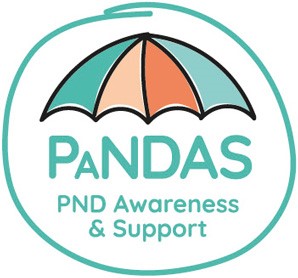Perinatal anxiety and depression are common health conditions that affect people who are expecting or have recently had a baby.
Birthing parents and non-birth parents can all get perinatal anxiety and depression. These conditions are temporary and treatable, but sometimes because of lack of awareness or stigma, not everyone gets the help they need when they need it.
Perinatal anxiety and depression can start during pregnancy (prenatal) or after having the baby (postnatal). There’s no set time for these conditions to begin; they can set in very early on, or they can begin months after you’ve had your baby.
Some people might start feeling unwell gradually, over days or weeks. Others might wake up one day and feel like everything is different.
Signs and symptoms of perinatal anxiety
Effects on your body
The common effects of perinatal anxiety on your body include:
- a churning feeling in your stomach
- feeling light-headed or dizzy
- pins and needles
- feeling restless or unable to sit still
- headaches, backache or other aches and pains
- faster breathing
- a fast, thumping or irregular heartbeat
- sweating or hot flushes
- finding it hard to sleep, even when you have the chance
- grinding your teeth, especially at night
- nausea (feeling sick)
- needing the toilet more or less often
- changes in your sex drive
- having panic attacks
Effects on your mind
The common effects of perinatal anxiety on your mind include:
- feeling tense, nervous or unable to relax
- having a sense of dread, or fearing the worst
- feeling like the world is speeding up or slowing down
- feeling like other people can see you’re anxious and are looking at you
- feeling like you can’t stop worrying, or that bad things will happen if you stop worrying
- worrying about anxiety itself, for example worrying about when panic attacks might happen
- wanting lots of reassurance from other people or worrying that people are angry or upset with you
- worrying that you’re losing touch with reality
- worrying a lot about things that might happen in the future
- rumination – thinking a lot about bad experiences or thinking over a situation again and again
- depersonalization – feeling disconnected from your mind or body, or like you’re watching someone else (this is a type of dissociation)
- derealization – feeling disconnected from the world around you, or like the world isn’t real (this is a type of dissociation)
Visit Mind for better mental health for more information
Perinatal Depression
Lots of people are aware of postnatal depression. But it is less known that many people experience antenatal depression, and some people may experience both.
Perinatal depression is a mood disorder that can affect people during pregnancy and after childbirth. The word “perinatal” refers to the time before and after the birth of a child. Perinatal depression includes depression that begins during pregnancy (called prenatal depression) and depression that begins after the baby is born (called postpartum depression). Parents with perinatal depression experience feelings of extreme sadness, anxiety, and fatigue that may make it difficult for them to carry out daily tasks, including caring for themselves or others.
Perinatal depression is a real medical illness and can affect any mother/parent—regardless of age, race, income, culture, or education. Parents are not to blame or at fault for having perinatal depression: it is not brought on by anything a parent has or has not done. Perinatal depression does not have a single cause.
https://www.nimh.nih.gov/health/publications/perinatal-depression/index.shtml
These are some of the common signs and symptoms of perinatal depression:
How you might feel
If you have perinatal depression, you might feel:
- down, upset or tearful
- restless, agitated or irritable
- guilty, worthless and down on yourself
- empty and numb
- isolated and unable to relate to other people
- finding no pleasure in life or things you usually enjoy
- a sense of unreality
- no self-confidence or self-esteem
- hopeless and despairing
- hostile or indifferent to your partner
- hostile or indifferent to your baby
- suicidal feelings
How you might behave
If you have perinatal depression, you might find that you:
- lose concentration
- find it hard to sleep, even when you have the chance
- have a reduced appetite
- lack interest in sex.
People experiencing depression may not feel that they can share how they feel. That is why incorporating a sharing circle and safe open place to be vulnerable during your class can be so important.
“I felt selfish and guilty for feeling negative and low. This made me isolate myself further and compounded the problem.”
“I found it hard because whilst people talk about postnatal depression there is very little discussion of mental ill health in pregnancy and it’s supposed to be such a joyful time.”
Contact PANDAS (perinatal anxiety and depression) to find out where to get support.


